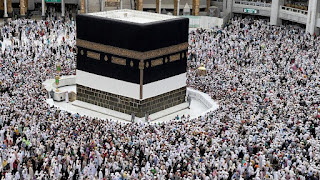Muslim history spans over 1,400 years, encompassing a rich tapestry of political, cultural, and intellectual achievements. From its origins in 7th-century Arabia, Islam emerged as a transformative force, shaping the world in significant ways. In this brief overview, we will touch upon key milestones and themes, highlighting major events and contributions.
The story of Muslim history begins with the life of Prophet Muhammad, who received revelations from God and established the Islamic faith. He unified the Arabian Peninsula under Islam and laid the foundation for a new political and social order. After Muhammad's death in 632 CE, the Muslim community, known as the Ummah, embarked on a remarkable expansion.
Under the Rashidun Caliphs (632-661 CE), the Muslim empire extended across the Arabian Peninsula, the Levant, Egypt, and Persia. It reached its zenith under the Umayyad Caliphate (661-750 CE), with territories stretching from Spain to India. The Abbasid Caliphate (750-1258 CE) succeeded the Umayyads and established Baghdad as its capital, ushering in a golden age of Islamic civilization. During this period, scholars flourished, translating and preserving classical works of ancient Greece, Persia, and India.
Islamic Spain, known as Al-Andalus, became a beacon of learning and cultural exchange. Its capital, Cordoba, boasted magnificent libraries, centers of art, and scientific advancement. Muslim scholars made significant contributions in mathematics, astronomy, medicine, and philosophy, influencing the European Renaissance centuries later.
Meanwhile, in the east, the Muslim world witnessed the rise of powerful empires. The Seljuks, followed by the Mongols, conquered vast territories, leading to the emergence of the Ottoman Empire. Under the Ottomans, who ruled from the 13th to the early 20th century, Islamic civilization reached new heights. Constantinople, renamed Istanbul, became a vibrant hub of trade, art, and scholarship.
Islam's spread also reached the Indian subcontinent, where the Delhi Sultanate and later the Mughal Empire flourished. The Mughals, known for their architectural marvels like the Taj Mahal, created a syncretic culture blending Islamic and Indian influences.
However, the Muslim world faced challenges and divisions. The Crusades in the 11th to 13th centuries brought conflict with Christian Europe, while internal disputes led to the division between Sunni and Shia branches of Islam. The Mongol invasions devastated parts of the Muslim world, and European colonialism in the 18th and 19th centuries further weakened Muslim societies.
In the 19th and 20th centuries, Muslim intellectuals and reformers sought to address these challenges. Figures like Muhammad Ali Jinnah, founder of Pakistan, and Mustafa Kemal Ataturk, the leader of modern Turkey, envisioned new paths for their nations. The decline of the Ottoman Empire and the emergence of nation-states shaped the Muslim world in the 20th century.
The 20th and 21st centuries also witnessed significant social and political changes. Decolonization efforts led to the establishment of numerous independent Muslim-majority nations. Movements for independence, such as the Indian independence movement led by Mahatma Gandhi, played pivotal roles in shaping the Muslim world.
Contemporary issues, such as the Israeli-Palestinian conflict, rise of political Islam, and the challenge of religious extremism, continue to shape the narrative of Muslim history. Muslim communities around the world face diverse experiences and grapple with the tensions between tradition and modernity, while striving for social, political, and economic progress.
Muslim history is a testament to the enduring legacy of Islam and the contributions of Muslim societies to human civilization. From the early achievements of Islamic scholars to the diverse cultural


.jpg)
.jpg)
.jpg)



.jpg)
.jpg)

No comments:
Post a Comment